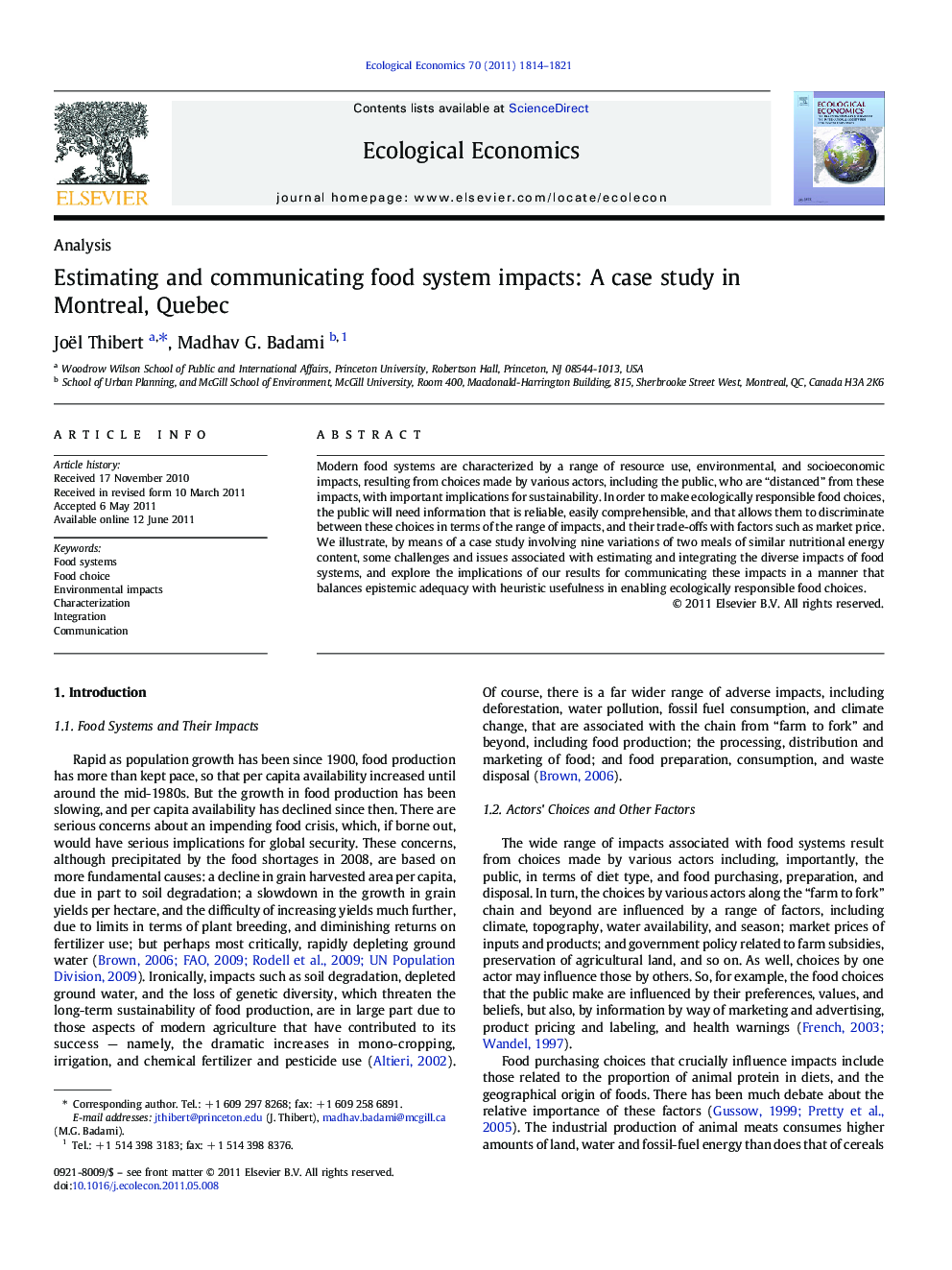| Article ID | Journal | Published Year | Pages | File Type |
|---|---|---|---|---|
| 5050652 | Ecological Economics | 2011 | 8 Pages |
Modern food systems are characterized by a range of resource use, environmental, and socioeconomic impacts, resulting from choices made by various actors, including the public, who are “distanced” from these impacts, with important implications for sustainability. In order to make ecologically responsible food choices, the public will need information that is reliable, easily comprehensible, and that allows them to discriminate between these choices in terms of the range of impacts, and their trade-offs with factors such as market price.We illustrate, by means of a case study involving nine variations of two meals of similar nutritional energy content, some challenges and issues associated with estimating and integrating the diverse impacts of food systems, and explore the implications of our results for communicating these impacts in a manner that balances epistemic adequacy with heuristic usefulness in enabling ecologically responsible food choices.
Research Highlights⺠Our study compared diverse impacts of nine meals representing key food choices. ⺠Impacts would be most reduced by using less greenhouse vegetables, followed by meat. ⺠Chemical and irrigation inputs are the smallest, and land the most important impact. ⺠Energy accounting and ecological footprint are equally useful in making food choices. ⺠Food prices correlate poorly with ecological impacts.
